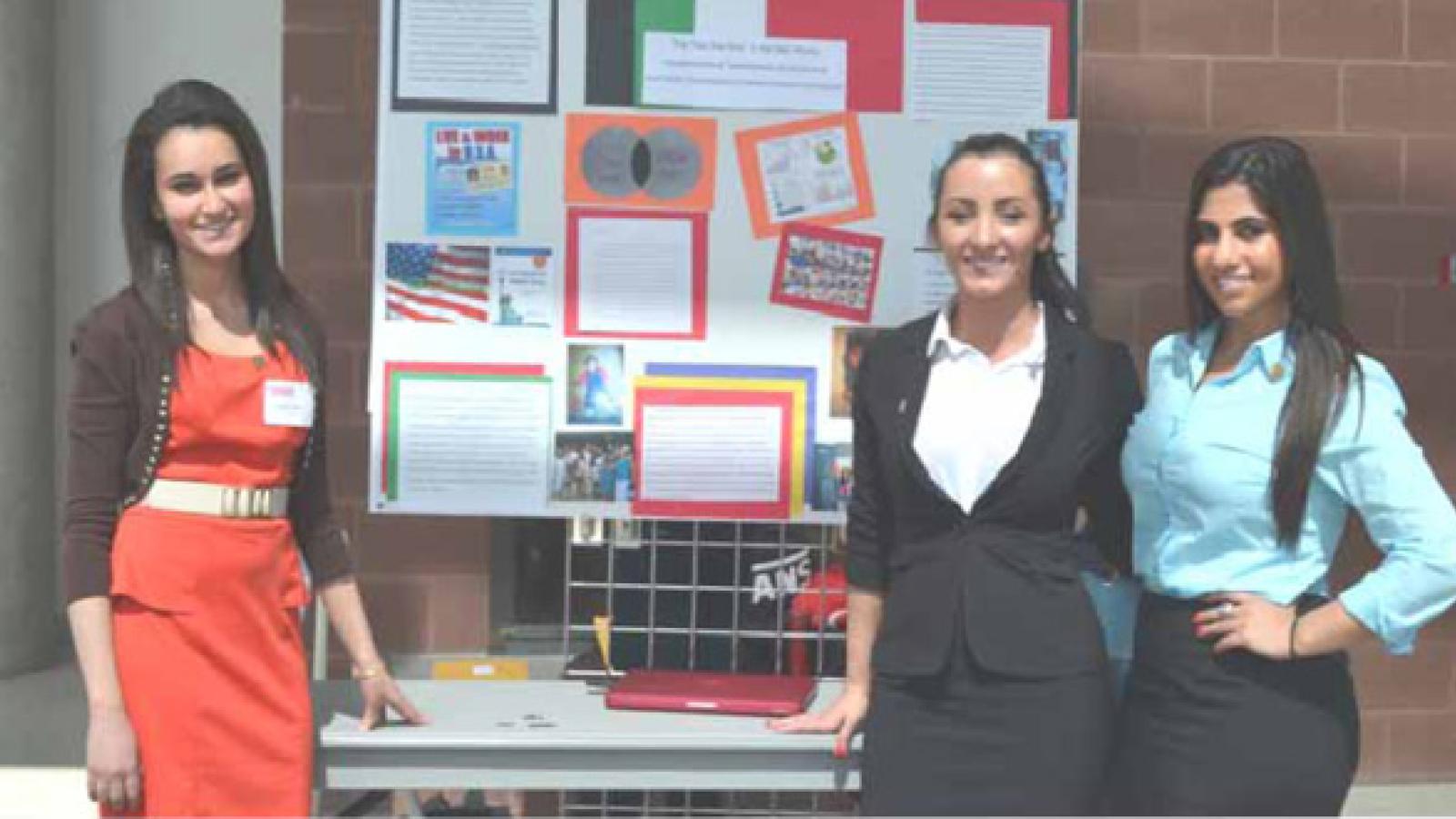“The Ties that Bind” in the New World: Intergenerational Transmission of Culture in a Dual Identity Context and the “Diversity Immigrant Visa” Program
Presenter(s): (left to right) Inaam Aissa (Criminology); Aida Tahiraj (International Relations & Diplomacy); Yasmin Kavarizadeh (International Relations & Diplomacy
Advisor: Dr. John Moe Department of Comparative Studies & English
The Diversity Immigrant Visa Program (also known as the Green Card Lottery) allows 55,000 people each year to immigrate to the U.S. Little academic research has been done on the impact of the system on individual emigrants. This study focuses on cultural transmission and acculturation of the newly arrived emigrants. The methodology includes in‐depth fieldwork with emigrants from Algeria, Albania, and Iran and demographic analysis of U.S. Census data. The results of the research indicate a different pattern of assimilation from the immigration of the late 19th century. Using this title, “The Ties that Bind,” we recognize the familiarity of the phrase. In fact, it is part of our story—to assimilate into the New World of American culture, while retaining an eye to our previous world—the worlds our families left to accept the challenge of relocating in the U.S.
For us, it is the story of the famous “American Lottery,” not unlike families at the end of the 19th century. A sample of our fieldwork is the following personal narrative: “From the time I was born until I left my native Algeria at the age of ten, I experienced civil war first hand. Even though I was just a child, I remember vividly the times when the electricity was cut off and I would be terrified that the terrorists were heading towards my neighborhood. I was fortunate in the sense that none of my family members were among the many Algerians who were in the wrong place at the wrong time. I was unfortunate in the sense that I had to leave everything and everyone I knew one day because it was simply not safe to continue to live in Algeria. That was the reason my parents decided to come to America, the land of the free.” (Inaam)

